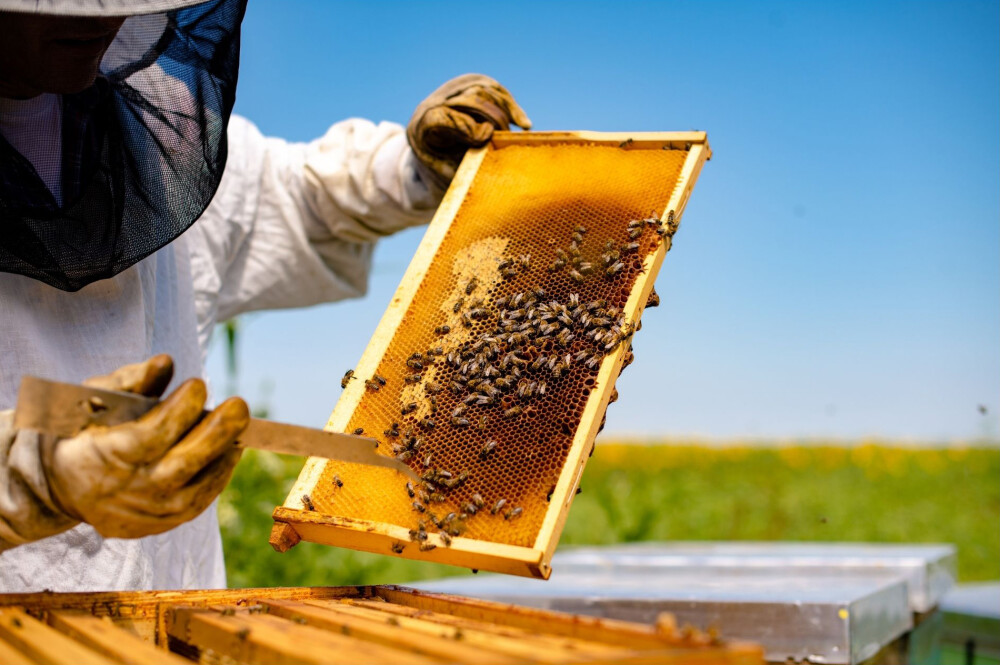Apiculture (Bee Keeping)
NTA offers Apiculture Level 2 as a Dual Enrolment course - while students are still at school.
We also work with Pacific Coast Technical Institute (PCTI) to offer a part time Level 3 course in the weekends.
Dual Enrolment Apiculture
Learn about Bee Keeping.
Earn 40 NCEA Level 2 credits - Thursdays & Fridays.
• Hive construction
• Hive management
• Bee behaviour
• Harvesting honey
• Shifting bees
The purpose of this programme is to provide the apiculture industry with people with a basic set of skills and the underpinning knowledge of keeping hives in an apiary. Successful leaners will be able to work confidently around bees in an apiary and complete a range of seasonal tasks required to keep the hives health and produce a honey crop. In addition, beehive construction and equipment used to manipulate the hives, manage hive health, and extract honey is all covered in the programme.
Why Study Apiculture/Bee Keeping?
Beekeeping allows you to observe the fascinating behaviour of bees and understand their critical role in the ecosystem. Apiculture supports sustainability by strengthening pollinator populations and encouraging eco-friendly land practices.
Beyond environmental impact, beekeeping contributes directly to food security by supporting pollination - essential for healthy crops and plant diversity. It’s also educational, enhancing your understanding of biology, ecology, and the interconnectedness of life. Many find beekeeping to be a therapeutic, fulfilling hobby.
Apiculture offers career potential as the demand for honey and other bee products continues to rise. This growing industry is in need of skilled beekeepers, opening up job opportunities in commercial and independent operations. Whether working as a beekeeper, assistant, or starting your own apiary, the field is full of options.
Beekeeping also equips you with valuable, hands-on skills, including hive management, disease prevention, honey extraction, and even basic woodworking to build and maintain hives. Beekeeping can also serve as a source of side income through the sale of honey and other bee products.
Beyond honey, bees produce wax, royal jelly, propolis, and even venom—all of which have commercial, nutritional, and medicinal applications. These products can support both personal use and financial gain.
Sting Awareness & Safety - NTA provides full protective gear for when handling bees. Despite common fears, bees are generally docile and sting only when they feel threatened. With proper handling, calm behaviour, and the use of protective gear, the risk of getting stung is low.
What else will I learn? - Hive management, disease control, honey production, and even woodworking.
Beehive construction and use of equipment to manipulate the hives, manage hive health, and extract honey.
Learn to work safely and confidently around bees in an apiary and complete a range of seasonal tasks required to keep the hives health and produce a honey crop.
